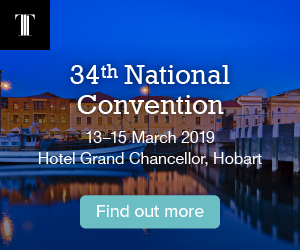The tax expert on keeping abreast of the changing tax landscape, being approachable and lessons from outlandish case studies that are more common than you think.
With 25 years’ experience in tax and a lecturer
of all core subjects over the last decade
for The Tax Institute’s structured education program, Rae Ni Corraidh got into tax by accident. She then realised she liked it and, in fact, was quite good at it.
Q. Tell us a bit about your career background.
After working at big four companies for ten years in a specialist role, I moved to mid-tier firms to develop a broader range of tax skills, where I worked for another ten years. I have been involved in teaching all the core structured education programs at The Tax Institute over the last decade.
I’m now
a tax adviser at the Knowledge Shop; an external advisory resource for firms that may not have their own tax expertise.
Q. Why did you choose a career in tax?
A. Tax is like a jigsaw puzzle where you don't have the picture – everything fits
in somewhere, you just need to figure out how and where. It’s about figuring out how the taxation legislation applies to the specific scenario you're looking at. In order to do that, it is essential to know and understand what the legislation says
, what the ATO interpretation of that legislation is, and be across recent guidance, cases, rulings, etc. That's the kind of thing that keeps the job interesting.
Q. Everyone knows tax is constantly changing. How can professionals cope with this?
A. Yes, it's an ever-evolving landscape, which is why people really need to be aware of what the current changes are and develop their own technical skills. That's what I enjoy about teaching with The Tax Institute. It not only makes sure that I'm up to date on everything tax, but it also means I get to see that light-bulb moment when students are able to grasp complex, technical tax topics. It’s the moment they actually get it and the content has gone from something theoretical to something tangible that they can apply to their client's scenarios. I really love that part.
Q. How do you facilitate the learning experience?
A. A lot of it is experience and being able to give people examples of the technical issue you're looking at. Some of the examples can be very black and white, but there are a lot more grey spots in the tax world. Some of the examples can appear to be a little bit outlandish for a tax course (where things are a lot more interesting than some of the students thought they would be) and students are sometimes surprised that these are real examples. When you have been working in tax for as long as I have, you've learnt a lot of different things from a lot of very unusual scenarios that can demonstrate the technical point you're studying.
Q. Why should practitioners choose The Tax Institute?
All the facilitators I know who teach with The Tax Institute are very experienced. They've all been working in tax for a very long time and all have quite unique, real-world experiences that they can use to bring technical concepts to life. I feel this adds a lot of value to the class and to the learning experience for students.
Q. What makes you stand out as a tax leader and teacher?
A. I would hope it’s my approachability and that I'm happy to answer any question in any area. I've had people say, 'oh this might be a silly question but ….' and I firmly believe there is no such thing as a silly question - if it can help you learn, then that question has value. So never be afraid to ask. And that's one of the key things I say to anybody that I teach or that I work with: never be afraid to ask, because you never know when you
can learn something new. I do like to be approachable and encourage others to ask me any question, whether it's technical or otherwise, because they will get an honest answer.










